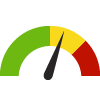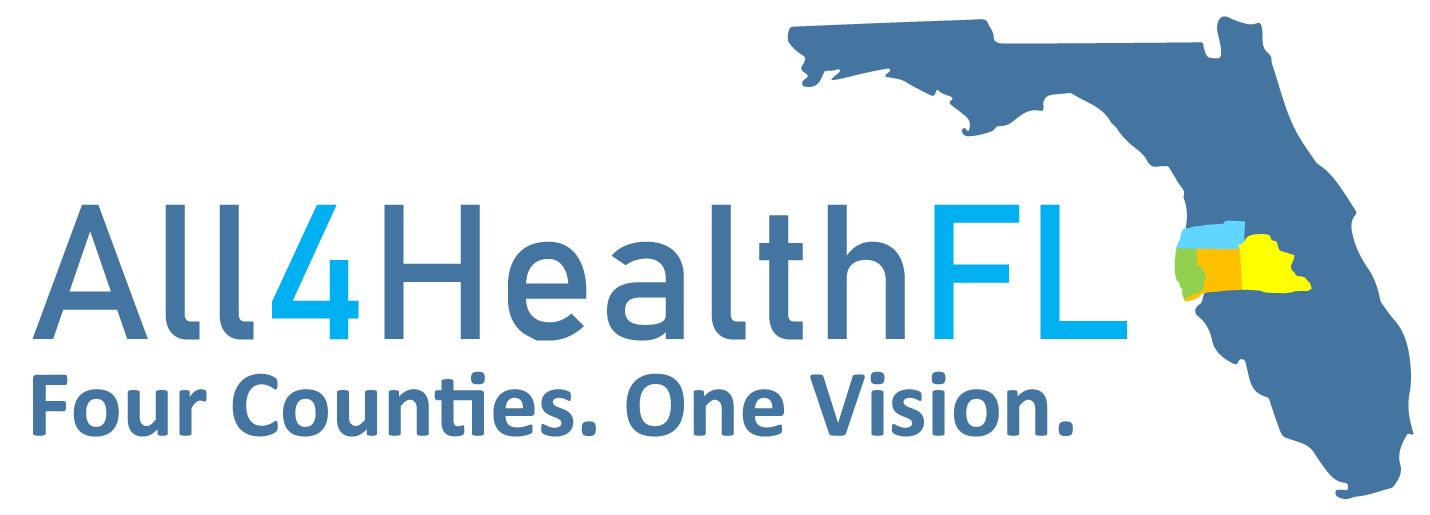Search for Indicators
All Data
Indicator Gauge Icon Legend
Legend Colors
Red is bad, green is good, blue is not statistically different/neutral.
Compared to Distribution
 the value is in the best half of communities.
the value is in the best half of communities.
 the value is in the 2nd worst quarter of communities.
the value is in the 2nd worst quarter of communities.
 the value is in the worst quarter of communities.
the value is in the worst quarter of communities.
Compared to Target
 meets target;
meets target;  does not meet target.
does not meet target.
Compared to a Single Value
 lower than the comparison value;
lower than the comparison value;
 higher than the comparison value;
higher than the comparison value;
 not statistically different from comparison value.
not statistically different from comparison value.
Trend

 non-significant change over time;
non-significant change over time; 
 significant change over time;
significant change over time;  no change over time.
no change over time.
Compared to Prior Value
 higher than the previous measurement period;
higher than the previous measurement period;
 lower than the previous measurement period;
lower than the previous measurement period;
 no statistically different change from previous measurement period.
no statistically different change from previous measurement period.
State: Florida
Health / Alcohol & Drug Use
Value
Compared to:
State: Florida Age-Adjusted Drug and Opioid-Involved Overdose Death Rate
State: Florida Age-Adjusted Drug and Opioid-Involved Overdose Death Rate
27.8
Deaths per 100,000 population
(2018-2020)
Compared to:




U.S. States
The distribution is based on data from 50 U.S. states and the District of Columbia.

US Value
(23.5)
The regional value is compared to the national value.

Prior Value
(25.6)
Prior Value compares a measured value with the previously measured value. Confidence intervals were taken into account in determining the direction of the comparison.
State: Florida Death Rate due to Drug Poisoning
State: Florida Death Rate due to Drug Poisoning
31.3
Deaths per 100,000 population
(2019-2021)
Compared to:




U.S. States
The distribution is based on data from 50 U.S. states and the District of Columbia.

US Value
(27.2)
The regional value is compared to the national value.

HP 2030 Target
(20.7)
<div>SU-03: Reduce drug overdose deaths <strong>(LEADING HEALTH INDICATOR)</strong></div>
State: Florida High School Students who have Used Methamphetamines
State: Florida High School Students who have Used Methamphetamines
0.3%
(2022)
Compared to:



Prior Value
(0.8%)
Prior Value compares a measured value with the previously measured value. Confidence intervals were taken into account in determining the direction of the comparison.

Trend
This comparison measures the indicator’s values over multiple time periods.<br>The Mann-Kendall Test for Statistical Significance is used to evaluate the trend<br>over 4 to 10 periods of measure, subject to data availability and comparability.
State: Florida High School Students who Use Marijuana
State: Florida High School Students who Use Marijuana
12.2%
(2022)
Compared to:



Prior Value
(15.9%)
Prior Value compares a measured value with the previously measured value. Confidence intervals were taken into account in determining the direction of the comparison.

Trend
This comparison measures the indicator’s values over multiple time periods.<br>The Mann-Kendall Test for Statistical Significance is used to evaluate the trend<br>over 4 to 10 periods of measure, subject to data availability and comparability.
State: Florida Teens who Binge Drink: High School Students
State: Florida Teens who Binge Drink: High School Students
7.5%
(2022)
Compared to:



Prior Value
(9.2%)
Prior Value compares a measured value with the previously measured value. Confidence intervals were taken into account in determining the direction of the comparison.

Trend
This comparison measures the indicator’s values over multiple time periods.<br>The Mann-Kendall Test for Statistical Significance is used to evaluate the trend<br>over 4 to 10 periods of measure, subject to data availability and comparability.
State: Florida Teens who Use Alcohol
State: Florida Teens who Use Alcohol
15.5%
(2022)
Compared to:



Prior Value
(19.9%)
Prior Value compares a measured value with the previously measured value. Confidence intervals were taken into account in determining the direction of the comparison.

Trend
This comparison measures the indicator’s values over multiple time periods.<br>The Mann-Kendall Test for Statistical Significance is used to evaluate the trend<br>over 4 to 10 periods of measure, subject to data availability and comparability.
State: Florida
Health / Cancer
Value
Compared to:
State: Florida Age-Adjusted Death Rate due to Breast Cancer
State: Florida Age-Adjusted Death Rate due to Breast Cancer
18.4
Deaths per 100,000 females
(2020-2022)
Compared to:





US Value
(19.6 in 2016-2020)
The regional value is compared to the national value. The source for the national value is National Cancer Institute

Prior Value
(18.6)
Prior Value compares a measured value with the previously measured value. Confidence intervals were not taken into account in determining the direction of the comparison.

Trend
This comparison measures the indicator’s values over multiple time periods.<br>The Mann-Kendall Test for Statistical Significance is used to evaluate the trend<br>over 4 to 10 periods of measure, subject to data availability and comparability.

HP 2030 Target
(15.3)
State: Florida Age-Adjusted Death Rate due to Cancer
State: Florida Age-Adjusted Death Rate due to Cancer
138.3
Deaths per 100,000 population
(2020-2022)
Compared to:





US Value
(149.4 in 2016-2020)
The regional value is compared to the national value. The source for the national value is National Cancer Institute

Prior Value
(139.7)
Prior Value compares a measured value with the previously measured value. Confidence intervals were not taken into account in determining the direction of the comparison.

Trend
This comparison measures the indicator’s values over multiple time periods.<br>The Mann-Kendall Test for Statistical Significance is used to evaluate the trend<br>over 4 to 10 periods of measure, subject to data availability and comparability.

HP 2030 Target
(122.7)
State: Florida Age-Adjusted Death Rate due to Colorectal Cancer
State: Florida Age-Adjusted Death Rate due to Colorectal Cancer
12.2
Deaths per 100,000 population
(2020-2022)
Compared to:





US Value
(13.1 in 2016-2020)
The regional value is compared to the national value. The source for the national value is National Cancer Institute

Prior Value
(12.2)
Prior Value compares a measured value with the previously measured value. Confidence intervals were not taken into account in determining the direction of the comparison.

Trend
This comparison measures the indicator’s values over multiple time periods.<br>The Mann-Kendall Test for Statistical Significance is used to evaluate the trend<br>over 4 to 10 periods of measure, subject to data availability and comparability.

HP 2030 Target
(8.9)
State: Florida Age-Adjusted Death Rate due to Lung Cancer
State: Florida Age-Adjusted Death Rate due to Lung Cancer
30.7
Deaths per 100,000 population
(2020-2022)
Compared to:





US Value
(35.0 in 2016-2020)
The regional value is compared to the national value. The source for the national value is National Cancer Institute

Prior Value
(32.0)
Prior Value compares a measured value with the previously measured value. Confidence intervals were not taken into account in determining the direction of the comparison.

Trend
This comparison measures the indicator’s values over multiple time periods.<br>The Mann-Kendall Test for Statistical Significance is used to evaluate the trend<br>over 4 to 10 periods of measure, subject to data availability and comparability.

HP 2030 Target
(25.1)
State: Florida Age-Adjusted Death Rate due to Prostate Cancer
State: Florida Age-Adjusted Death Rate due to Prostate Cancer
16.6
Deaths per 100,000 males
(2020-2022)
Compared to:





US Value
(18.8 in 2016-2020)
The regional value is compared to the national value. The source for the national value is National Cancer Institute

Prior Value
(16.3)
Prior Value compares a measured value with the previously measured value. Confidence intervals were not taken into account in determining the direction of the comparison.

Trend
This comparison measures the indicator’s values over multiple time periods.<br>The Mann-Kendall Test for Statistical Significance is used to evaluate the trend<br>over 4 to 10 periods of measure, subject to data availability and comparability.

HP 2030 Target
(16.9)
State: Florida Breast Cancer Incidence Rate
State: Florida Breast Cancer Incidence Rate
127.3
Cases per 100,000 females
(2019-2021)
Compared to:




US Value
(127.0 in 2016-2020)
The regional value is compared to the national value. The source for the national value is National Cancer Institute

Prior Value
(123.5)
Prior Value compares a measured value with the previously measured value. Confidence intervals were not taken into account in determining the direction of the comparison.

Trend
This comparison measures the indicator’s values over multiple time periods.<br>The Mann-Kendall Test for Statistical Significance is used to evaluate the trend<br>over 4 to 10 periods of measure, subject to data availability and comparability.
State: Florida Cancer: Medicare Population
State: Florida Cancer: Medicare Population
14.0%
(2022)
Compared to:





U.S. States
The distribution is based on data from 50 U.S. states and the District of Columbia.

US Value
(12.0%)
The regional value is compared to the national value.

Prior Value
(13.0%)
Prior Value compares a measured value with the previously measured value. Confidence intervals were not taken into account in determining the direction of the comparison.

Trend
This comparison measures the indicator’s values over multiple time periods.<br>The Mann-Kendall Test for Statistical Significance is used to evaluate the trend<br>over 4 to 10 periods of measure, subject to data availability and comparability.
State: Florida Cervical Cancer Incidence Rate
State: Florida Cervical Cancer Incidence Rate
8.9
Cases per 100,000 females
(2019-2021)
Compared to:




US Value
(7.5 in 2016-2020)
The regional value is compared to the national value. The source for the national value is National Cancer Institute

Prior Value
(8.8)
Prior Value compares a measured value with the previously measured value. Confidence intervals were not taken into account in determining the direction of the comparison.

Trend
This comparison measures the indicator’s values over multiple time periods.<br>The Mann-Kendall Test for Statistical Significance is used to evaluate the trend<br>over 4 to 10 periods of measure, subject to data availability and comparability.
State: Florida Colon Cancer Screening
State: Florida Colon Cancer Screening
16.0%
(2016)
Compared to:


Prior Value
(13.9%)
Prior Value compares a measured value with the previously measured value. Confidence intervals were not taken into account in determining the direction of the comparison.
State: Florida Colorectal Cancer Incidence Rate
State: Florida Colorectal Cancer Incidence Rate
35.1
Cases per 100,000 population
(2019-2021)
Compared to:




US Value
(36.5 in 2016-2020)
The regional value is compared to the national value. The source for the national value is National Cancer Institute

Prior Value
(34.7)
Prior Value compares a measured value with the previously measured value. Confidence intervals were not taken into account in determining the direction of the comparison.

Trend
This comparison measures the indicator’s values over multiple time periods.<br>The Mann-Kendall Test for Statistical Significance is used to evaluate the trend<br>over 4 to 10 periods of measure, subject to data availability and comparability.
State: Florida Lung and Bronchus Cancer Incidence Rate
State: Florida Lung and Bronchus Cancer Incidence Rate
52.3
Cases per 100,000 population
(2019-2021)
Compared to:




US Value
(54.0 in 2016-2020)
The regional value is compared to the national value. The source for the national value is National Cancer Institute

Prior Value
(53.8)
Prior Value compares a measured value with the previously measured value. Confidence intervals were not taken into account in determining the direction of the comparison.

Trend
This comparison measures the indicator’s values over multiple time periods.<br>The Mann-Kendall Test for Statistical Significance is used to evaluate the trend<br>over 4 to 10 periods of measure, subject to data availability and comparability.
State: Florida Mammogram in Past Year: 40+
State: Florida Mammogram in Past Year: 40+
60.8%
(2016)
Compared to:


Prior Value
(61.9%)
Prior Value compares a measured value with the previously measured value. Confidence intervals were not taken into account in determining the direction of the comparison.
State: Florida Mammography Screening: Medicare Population
State: Florida Mammography Screening: Medicare Population
46.0%
(2022)
Compared to:





U.S. States
The distribution is based on data from 50 U.S. states and the District of Columbia.

US Value
(47.0%)
The regional value is compared to the national value.

Prior Value
(47.0%)
Prior Value compares a measured value with the previously measured value. Confidence intervals were not taken into account in determining the direction of the comparison.

Trend
This comparison measures the indicator’s values over multiple time periods.<br>The Mann-Kendall Test for Statistical Significance is used to evaluate the trend<br>over 4 to 10 periods of measure, subject to data availability and comparability.
State: Florida Melanoma Incidence Rate
State: Florida Melanoma Incidence Rate
25.3
Cases per 100,000 population
(2019-2021)
Compared to:




US Value
(22.5 in 2016-2020)
The regional value is compared to the national value. The source for the national value is National Cancer Institute

Prior Value
(25.0)
Prior Value compares a measured value with the previously measured value. Confidence intervals were not taken into account in determining the direction of the comparison.

Trend
This comparison measures the indicator’s values over multiple time periods.<br>The Mann-Kendall Test for Statistical Significance is used to evaluate the trend<br>over 4 to 10 periods of measure, subject to data availability and comparability.
State: Florida Oral Cavity and Pharynx Cancer Incidence Rate
State: Florida Oral Cavity and Pharynx Cancer Incidence Rate
14.1
Cases per 100,000 population
(2019-2021)
Compared to:




US Value
(11.9 in 2016-2020)
The regional value is compared to the national value. The source for the national value is National Cancer Institute

Prior Value
(13.7)
Prior Value compares a measured value with the previously measured value. Confidence intervals were not taken into account in determining the direction of the comparison.

Trend
This comparison measures the indicator’s values over multiple time periods.<br>The Mann-Kendall Test for Statistical Significance is used to evaluate the trend<br>over 4 to 10 periods of measure, subject to data availability and comparability.
State: Florida Pap Test in Past Year
State: Florida Pap Test in Past Year
48.4%
(2016)
Compared to:


Prior Value
(51.4%)
Prior Value compares a measured value with the previously measured value. Confidence intervals were not taken into account in determining the direction of the comparison.
State: Florida Prostate Cancer Incidence Rate
State: Florida Prostate Cancer Incidence Rate
98.8
Cases per 100,000 males
(2019-2021)
Compared to:




US Value
(110.5 in 2016-2020)
The regional value is compared to the national value. The source for the national value is National Cancer Institute

Prior Value
(90.5)
Prior Value compares a measured value with the previously measured value. Confidence intervals were not taken into account in determining the direction of the comparison.

Trend
This comparison measures the indicator’s values over multiple time periods.<br>The Mann-Kendall Test for Statistical Significance is used to evaluate the trend<br>over 4 to 10 periods of measure, subject to data availability and comparability.
State: Florida
Health / Children's Health
Value
Compared to:
State: Florida Child Mortality Rate: Under 20
State: Florida Child Mortality Rate: Under 20
53.5
Deaths per 100,000 population under 20
(2018-2021)
Compared to:



U.S. States
The distribution is based on data from 50 U.S. states and the District of Columbia.

US Value
(50.6)
The regional value is compared to the national value.
State: Florida
Health / Diabetes
Value
Compared to:
State: Florida Age-Adjusted Death Rate due to Diabetes
State: Florida Age-Adjusted Death Rate due to Diabetes
22.8
Deaths per 100,000 population
(2022)
Compared to:




US Value
(24.8 in 2020)
The regional value is compared to the national value. The source for the national value is Centers for Disease Control and Prevention

Prior Value
(24.2)
Prior Value compares a measured value with the previously measured value. Confidence intervals were not taken into account in determining the direction of the comparison.

Trend
This comparison measures the indicator’s values over multiple time periods.<br>The Mann-Kendall Test for Statistical Significance is used to evaluate the trend<br>over 4 to 10 periods of measure, subject to data availability and comparability.
State: Florida Diabetes: Medicare Population
State: Florida Diabetes: Medicare Population
25.0%
(2022)
Compared to:





U.S. States
The distribution is based on data from 50 U.S. states and the District of Columbia.

US Value
(24.0%)
The regional value is compared to the national value.

Prior Value
(25.0%)
Prior Value compares a measured value with the previously measured value. Confidence intervals were not taken into account in determining the direction of the comparison.

Trend
This comparison measures the indicator’s values over multiple time periods.<br>The Mann-Kendall Test for Statistical Significance is used to evaluate the trend<br>over 4 to 10 periods of measure, subject to data availability and comparability.
State: Florida
Health / Disabilities
Value
Compared to:
State: Florida Adults with Disability Living in Poverty
State: Florida Adults with Disability Living in Poverty
22.9%
(2018-2022)
Compared to:




U.S. States
The distribution is based on data from 50 U.S. states and the District of Columbia.

US Value
(24.9%)
The regional value is compared to the national value.

Trend
This comparison measures the indicator’s values over multiple time periods.<br>The Mann-Kendall Test for Statistical Significance is used to evaluate the trend<br>over 4 to 10 periods of measure, subject to data availability and comparability.
State: Florida Children with a Disability
State: Florida Children with a Disability
4.8%
(2018-2022)
Compared to:



US Value
(4.5%)
The regional value is compared to the national value.

Trend
This comparison measures the indicator’s values over multiple time periods.<br>The Mann-Kendall Test for Statistical Significance is used to evaluate the trend<br>over 4 to 10 periods of measure, subject to data availability and comparability.
State: Florida Persons with a Cognitive Difficulty
State: Florida Persons with a Cognitive Difficulty
5.3%
(2018-2022)
Compared to:



US Value
(5.3%)
The regional value is compared to the national value.

Trend
This comparison measures the indicator’s values over multiple time periods.<br>The Mann-Kendall Test for Statistical Significance is used to evaluate the trend<br>over 4 to 10 periods of measure, subject to data availability and comparability.
State: Florida Persons with a Disability
State: Florida Persons with a Disability
13.5%
(2018-2022)
Compared to:



US Value
(12.9%)
The regional value is compared to the national value.

Trend
This comparison measures the indicator’s values over multiple time periods.<br>The Mann-Kendall Test for Statistical Significance is used to evaluate the trend<br>over 4 to 10 periods of measure, subject to data availability and comparability.
State: Florida Persons with a Hearing Difficulty
State: Florida Persons with a Hearing Difficulty
3.8%
(2018-2022)
Compared to:



US Value
(3.6%)
The regional value is compared to the national value.

Trend
This comparison measures the indicator’s values over multiple time periods.<br>The Mann-Kendall Test for Statistical Significance is used to evaluate the trend<br>over 4 to 10 periods of measure, subject to data availability and comparability.
State: Florida Persons with a Self-Care Difficulty
State: Florida Persons with a Self-Care Difficulty
2.7%
(2018-2022)
Compared to:



US Value
(2.6%)
The regional value is compared to the national value.

Trend
This comparison measures the indicator’s values over multiple time periods.<br>The Mann-Kendall Test for Statistical Significance is used to evaluate the trend<br>over 4 to 10 periods of measure, subject to data availability and comparability.
State: Florida Persons with a Vision Difficulty
State: Florida Persons with a Vision Difficulty
2.5%
(2018-2022)
Compared to:



US Value
(2.4%)
The regional value is compared to the national value.

Trend
This comparison measures the indicator’s values over multiple time periods.<br>The Mann-Kendall Test for Statistical Significance is used to evaluate the trend<br>over 4 to 10 periods of measure, subject to data availability and comparability.
State: Florida Persons with an Ambulatory Difficulty
State: Florida Persons with an Ambulatory Difficulty
7.3%
(2018-2022)
Compared to:



US Value
(6.7%)
The regional value is compared to the national value.

Trend
This comparison measures the indicator’s values over multiple time periods.<br>The Mann-Kendall Test for Statistical Significance is used to evaluate the trend<br>over 4 to 10 periods of measure, subject to data availability and comparability.
State: Florida Veterans with a Disability
State: Florida Veterans with a Disability
30.1%
(2018-2022)
Compared to:



US Value
(29.8%)
The regional value is compared to the national value.

Trend
This comparison measures the indicator’s values over multiple time periods.<br>The Mann-Kendall Test for Statistical Significance is used to evaluate the trend<br>over 4 to 10 periods of measure, subject to data availability and comparability.
State: Florida
Health / Family Planning
Value
Compared to:
State: Florida Teen Birth Rate: 15-19
State: Florida Teen Birth Rate: 15-19
13.2
Live births per 1,000 females aged 15-19
(2022)
Compared to:




US Value
(13.6)
The regional value is compared to the national value. The source for the national value is Centers for Disease Control and Prevention, National Center for Health Statistics

Prior Value
(13.6)
Prior Value compares a measured value with the previously measured value. Confidence intervals were not taken into account in determining the direction of the comparison.

Trend
This comparison measures the indicator’s values over multiple time periods.<br>The Mann-Kendall Test for Statistical Significance is used to evaluate the trend<br>over 4 to 10 periods of measure, subject to data availability and comparability.
State: Florida Teens who are Sexually Active
State: Florida Teens who are Sexually Active
36.1%
(2021)
Compared to:





U.S. States
The distribution is based on data from 31 U.S. states and the District of Columbia.

US Value
(30.0%)
The regional value is compared to the national value.

Prior Value
(36.6%)
Prior Value compares a measured value with the previously measured value. Confidence intervals were taken into account in determining the direction of the comparison.

Trend
This comparison measures the indicator’s values over multiple time periods.<br>The Mann-Kendall Test for Statistical Significance is used to evaluate the trend<br>over 4 to 10 periods of measure, subject to data availability and comparability.
State: Florida
Health / Food Safety
Value
Compared to:
State: Florida Salmonella Infection Incidence Rate
State: Florida Salmonella Infection Incidence Rate
31.4
Cases per 100,000 population
(2023)
Compared to:





US Value
(15.0 in 2021)
The regional value is compared to the national value. The source for the national value is Centers for Disease Control and Prevention

Prior Value
(31.5)
Prior Value compares a measured value with the previously measured value. Confidence intervals were not taken into account in determining the direction of the comparison.

Trend
This comparison measures the indicator’s values over multiple time periods.<br>The Mann-Kendall Test for Statistical Significance is used to evaluate the trend<br>over 4 to 10 periods of measure, subject to data availability and comparability.

HP 2030 Target
(11.5)
State: Florida
Health / Health Care Access & Quality
Value
Compared to:
State: Florida Adults with Health Insurance
State: Florida Adults with Health Insurance
84.5%
(2023)
Compared to:





U.S. States
The distribution is based on data from 50 U.S. states and the District of Columbia.

US Value
(89.0%)
The regional value is compared to the national value.

Prior Value
(83.8%)
Prior Value compares a measured value with the previously measured value. Confidence intervals were taken into account in determining the direction of the comparison.

Trend
This comparison measures the indicator’s values over multiple time periods.<br>The Mann-Kendall Test for Statistical Significance is used to evaluate the trend<br>over 4 to 10 periods of measure, subject to data availability and comparability.
State: Florida Children with Health Insurance
State: Florida Children with Health Insurance
92.5%
(2023)
Compared to:





U.S. States
The distribution is based on data from 50 U.S. states and the District of Columbia.

US Value
(94.6%)
The regional value is compared to the national value.

Prior Value
(92.6%)
Prior Value compares a measured value with the previously measured value. Confidence intervals were taken into account in determining the direction of the comparison.

Trend
This comparison measures the indicator’s values over multiple time periods.<br>The Mann-Kendall Test for Statistical Significance is used to evaluate the trend<br>over 4 to 10 periods of measure, subject to data availability and comparability.
State: Florida Community Spending on Health Care
State: Florida Community Spending on Health Care
8.5%
(2024)
Compared to:



US Value
(8.0%)
The regional value is compared to the national value.

Prior Value
(8.5%)
Prior Value compares a measured value with the previously measured value. Confidence intervals were not taken into account in determining the direction of the comparison.
State: Florida Health Insurance Spending-to-Income Ratio
State: Florida Health Insurance Spending-to-Income Ratio
6.9%
(2024)
Compared to:




U.S. States
The distribution is based on data from 50 U.S. states and the District of Columbia.

US Value
(6.1%)
The regional value is compared to the national value.

Prior Value
(7.3%)
Prior Value compares a measured value with the previously measured value. Confidence intervals were not taken into account in determining the direction of the comparison.
State: Florida Median Monthly Medicaid Enrollment
State: Florida Median Monthly Medicaid Enrollment
24,510
Enrollments per 100,000 population
(2022)
Compared to:



Prior Value
(22,446)
Prior Value compares a measured value with the previously measured value. Confidence intervals were not taken into account in determining the direction of the comparison.

Trend
This comparison measures the indicator’s values over multiple time periods.<br>The Mann-Kendall Test for Statistical Significance is used to evaluate the trend<br>over 4 to 10 periods of measure, subject to data availability and comparability.
State: Florida Non-Physician Primary Care Provider Rate
State: Florida Non-Physician Primary Care Provider Rate
158
Providers per 100,000 population
(2023)
Compared to:




U.S. States
The distribution is based on data from 50 U.S. states and the District of Columbia.

Prior Value
(148)
Prior Value compares a measured value with the previously measured value. Confidence intervals were not taken into account in determining the direction of the comparison.

Trend
This comparison measures the indicator’s values over multiple time periods.<br>The Mann-Kendall Test for Statistical Significance is used to evaluate the trend<br>over 4 to 10 periods of measure, subject to data availability and comparability.
State: Florida Persons with Health Insurance
State: Florida Persons with Health Insurance
86.1%
(2022)
Compared to:





U.S. States
The distribution is based on data from 50 U.S. states and the District of Columbia.

Prior Value
(84.9%)
Prior Value compares a measured value with the previously measured value. Confidence intervals were taken into account in determining the direction of the comparison.

Trend
This comparison measures the indicator’s values over multiple time periods.<br>The Mann-Kendall Test for Statistical Significance is used to evaluate the trend<br>over 4 to 10 periods of measure, subject to data availability and comparability.

HP 2030 Target
(92.4%)
<div>AHS-01: Increase the proportion of people with health insurance <strong>(LEADING HEALTH INDICATOR)</strong></div>
State: Florida Persons with Private Health Insurance Only
State: Florida Persons with Private Health Insurance Only
51.8%
(2023)
Compared to:




US Value
(54.7%)
The regional value is compared to the national value.

Prior Value
(51.3%)
Prior Value compares a measured value with the previously measured value. Confidence intervals were not taken into account in determining the direction of the comparison.

Trend
This comparison measures the indicator’s values over multiple time periods.<br>The Mann-Kendall Test for Statistical Significance is used to evaluate the trend<br>over 4 to 10 periods of measure, subject to data availability and comparability.
State: Florida Persons with Public Health Insurance Only
State: Florida Persons with Public Health Insurance Only
25.1%
(2023)
Compared to:




US Value
(25.1%)
The regional value is compared to the national value.

Prior Value
(25.2%)
Prior Value compares a measured value with the previously measured value. Confidence intervals were not taken into account in determining the direction of the comparison.

Trend
This comparison measures the indicator’s values over multiple time periods.<br>The Mann-Kendall Test for Statistical Significance is used to evaluate the trend<br>over 4 to 10 periods of measure, subject to data availability and comparability.
State: Florida Preventable Hospital Stays: Medicare Population
State: Florida Preventable Hospital Stays: Medicare Population
3,085
Discharges per 100,000 Medicare enrollees
(2022)
Compared to:





U.S. States
The distribution is based on data from 50 U.S. states and the District of Columbia.

US Value
(2,677)
The regional value is compared to the national value.

Prior Value
(3,035)
Prior Value compares a measured value with the previously measured value. Confidence intervals were not taken into account in determining the direction of the comparison.

Trend
This comparison measures the indicator’s values over multiple time periods.<br>The Mann-Kendall Test for Statistical Significance is used to evaluate the trend<br>over 4 to 10 periods of measure, subject to data availability and comparability.
State: Florida Primary Care Provider Rate
State: Florida Primary Care Provider Rate
73
Providers per 100,000 population
(2021)
Compared to:




U.S. States
The distribution is based on data from 50 U.S. states and the District of Columbia.

Prior Value
(73)
Prior Value compares a measured value with the previously measured value. Confidence intervals were not taken into account in determining the direction of the comparison.

Trend
This comparison measures the indicator’s values over multiple time periods.<br>The Mann-Kendall Test for Statistical Significance is used to evaluate the trend<br>over 4 to 10 periods of measure, subject to data availability and comparability.
State: Florida
Health / Health Information Technology
Value
Compared to:
State: Florida Households with an Internet Subscription
State: Florida Households with an Internet Subscription
88.9%
(2018-2022)
Compared to:




U.S. States
The distribution is based on data from 50 U.S. states and the District of Columbia.

US Value
(88.5%)
The regional value is compared to the national value.

Trend
This comparison measures the indicator’s values over multiple time periods.<br>The Mann-Kendall Test for Statistical Significance is used to evaluate the trend<br>over 4 to 10 periods of measure, subject to data availability and comparability.
State: Florida Households with One or More Types of Computing Devices
State: Florida Households with One or More Types of Computing Devices
95.2%
(2018-2022)
Compared to:




U.S. States
The distribution is based on data from 50 U.S. states and the District of Columbia.

US Value
(94.0%)
The regional value is compared to the national value.

Trend
This comparison measures the indicator’s values over multiple time periods.<br>The Mann-Kendall Test for Statistical Significance is used to evaluate the trend<br>over 4 to 10 periods of measure, subject to data availability and comparability.
State: Florida Persons with an Internet Subscription
State: Florida Persons with an Internet Subscription
91.0%
(2018-2022)
Compared to:




U.S. States
The distribution is based on data from 50 U.S. states and the District of Columbia.

US Value
(91.0%)
The regional value is compared to the national value.

Trend
This comparison measures the indicator’s values over multiple time periods.<br>The Mann-Kendall Test for Statistical Significance is used to evaluate the trend<br>over 4 to 10 periods of measure, subject to data availability and comparability.
State: Florida
Health / Heart Disease & Stroke
Value
Compared to:
47.6
Deaths per 100,000 population
(2022)
Compared to:





US Value
(38.8 in 2020)
The regional value is compared to the national value. The source for the national value is Centers for Disease Control and Prevention

Prior Value
(43.7)
Prior Value compares a measured value with the previously measured value. Confidence intervals were not taken into account in determining the direction of the comparison.

Trend
This comparison measures the indicator’s values over multiple time periods.<br>The Mann-Kendall Test for Statistical Significance is used to evaluate the trend<br>over 4 to 10 periods of measure, subject to data availability and comparability.

HP 2030 Target
(33.4)
State: Florida Age-Adjusted Death Rate due to Coronary Heart Disease
State: Florida Age-Adjusted Death Rate due to Coronary Heart Disease
88.8
Deaths per 100,000 population
(2022)
Compared to:





US Value
(91.8 in 2020)
The regional value is compared to the national value. The source for the national value is Centers for Disease Control and Prevention

Prior Value
(87.8)
Prior Value compares a measured value with the previously measured value. Confidence intervals were not taken into account in determining the direction of the comparison.

Trend
This comparison measures the indicator’s values over multiple time periods.<br>The Mann-Kendall Test for Statistical Significance is used to evaluate the trend<br>over 4 to 10 periods of measure, subject to data availability and comparability.

HP 2030 Target
(71.1)
State: Florida Age-Adjusted Death Rate due to Heart Attack
State: Florida Age-Adjusted Death Rate due to Heart Attack
44.4
Deaths per 100,000 population 35+ years
(2021)
Compared to:




U.S. States
The distribution is based on data from 50 U.S. states and the District of Columbia.

Prior Value
(42.5)
Prior Value compares a measured value with the previously measured value. Confidence intervals were not taken into account in determining the direction of the comparison.

Trend
This comparison measures the indicator’s values over multiple time periods.<br>The Mann-Kendall Test for Statistical Significance is used to evaluate the trend<br>over 4 to 10 periods of measure, subject to data availability and comparability.
State: Florida Age-Adjusted Hospitalization Rate due to Heart Attack
State: Florida Age-Adjusted Hospitalization Rate due to Heart Attack
27.2
Hospitalizations per 10,000 population 35+ years
(2022)
Compared to:



Prior Value
(27.3)
Prior Value compares a measured value with the previously measured value. Confidence intervals were not taken into account in determining the direction of the comparison.

Trend
This comparison measures the indicator’s values over multiple time periods.<br>The Mann-Kendall Test for Statistical Significance is used to evaluate the trend<br>over 4 to 10 periods of measure, subject to data availability and comparability.
State: Florida Atrial Fibrillation: Medicare Population
State: Florida Atrial Fibrillation: Medicare Population
16.0%
(2022)
Compared to:





U.S. States
The distribution is based on data from 50 U.S. states and the District of Columbia.

US Value
(14.0%)
The regional value is compared to the national value.

Prior Value
(16.0%)
Prior Value compares a measured value with the previously measured value. Confidence intervals were not taken into account in determining the direction of the comparison.

Trend
This comparison measures the indicator’s values over multiple time periods.<br>The Mann-Kendall Test for Statistical Significance is used to evaluate the trend<br>over 4 to 10 periods of measure, subject to data availability and comparability.
State: Florida Heart Failure: Medicare Population
State: Florida Heart Failure: Medicare Population
12.0%
(2022)
Compared to:





U.S. States
The distribution is based on data from 50 U.S. states and the District of Columbia.

US Value
(11.0%)
The regional value is compared to the national value.

Prior Value
(12.0%)
Prior Value compares a measured value with the previously measured value. Confidence intervals were not taken into account in determining the direction of the comparison.

Trend
This comparison measures the indicator’s values over multiple time periods.<br>The Mann-Kendall Test for Statistical Significance is used to evaluate the trend<br>over 4 to 10 periods of measure, subject to data availability and comparability.
State: Florida High Blood Pressure Prevalence
State: Florida Hyperlipidemia: Medicare Population
State: Florida Hyperlipidemia: Medicare Population
75.0%
(2022)
Compared to:





U.S. States
The distribution is based on data from 50 U.S. states and the District of Columbia.

US Value
(65.0%)
The regional value is compared to the national value.

Prior Value
(74.0%)
Prior Value compares a measured value with the previously measured value. Confidence intervals were not taken into account in determining the direction of the comparison.

Trend
This comparison measures the indicator’s values over multiple time periods.<br>The Mann-Kendall Test for Statistical Significance is used to evaluate the trend<br>over 4 to 10 periods of measure, subject to data availability and comparability.
State: Florida Hypertension: Medicare Population
State: Florida Hypertension: Medicare Population
69.0%
(2022)
Compared to:





U.S. States
The distribution is based on data from 50 U.S. states and the District of Columbia.

US Value
(65.0%)
The regional value is compared to the national value.

Prior Value
(69.0%)
Prior Value compares a measured value with the previously measured value. Confidence intervals were not taken into account in determining the direction of the comparison.

Trend
This comparison measures the indicator’s values over multiple time periods.<br>The Mann-Kendall Test for Statistical Significance is used to evaluate the trend<br>over 4 to 10 periods of measure, subject to data availability and comparability.
State: Florida Ischemic Heart Disease: Medicare Population
State: Florida Ischemic Heart Disease: Medicare Population
27.0%
(2022)
Compared to:





U.S. States
The distribution is based on data from 50 U.S. states and the District of Columbia.

US Value
(21.0%)
The regional value is compared to the national value.

Prior Value
(26.0%)
Prior Value compares a measured value with the previously measured value. Confidence intervals were not taken into account in determining the direction of the comparison.

Trend
This comparison measures the indicator’s values over multiple time periods.<br>The Mann-Kendall Test for Statistical Significance is used to evaluate the trend<br>over 4 to 10 periods of measure, subject to data availability and comparability.
State: Florida Stroke: Medicare Population
State: Florida Stroke: Medicare Population
7.0%
(2022)
Compared to:





U.S. States
The distribution is based on data from 50 U.S. states and the District of Columbia.

US Value
(6.0%)
The regional value is compared to the national value.

Prior Value
(7.0%)
Prior Value compares a measured value with the previously measured value. Confidence intervals were not taken into account in determining the direction of the comparison.

Trend
This comparison measures the indicator’s values over multiple time periods.<br>The Mann-Kendall Test for Statistical Significance is used to evaluate the trend<br>over 4 to 10 periods of measure, subject to data availability and comparability.
State: Florida
Health / Immunizations & Infectious Diseases
Value
Compared to:
State: Florida Age-Adjusted Death Rate due to Influenza and Pneumonia
State: Florida Age-Adjusted Death Rate due to Influenza and Pneumonia
8.6
Deaths per 100,000 population
(2022)
Compared to:




US Value
(13.0 in 2020)
The regional value is compared to the national value. The source for the national value is Centers for Disease Control and Prevention

Prior Value
(8.4)
Prior Value compares a measured value with the previously measured value. Confidence intervals were not taken into account in determining the direction of the comparison.

Trend
This comparison measures the indicator’s values over multiple time periods.<br>The Mann-Kendall Test for Statistical Significance is used to evaluate the trend<br>over 4 to 10 periods of measure, subject to data availability and comparability.
State: Florida COVID-19 Daily Average Case-Fatality Rate
State: Florida COVID-19 Daily Average Case-Fatality Rate
0.7
Deaths per 100 cases
(Mar 3, 2023)
Compared to:





U.S. States
The distribution is based on data from 49 U.S. states and the District of Columbia.

US Value
(1.7)
The regional value is compared to the national value.

Prior Value
(0.0)
Prior Value compares a measured value with the previously measured value. Confidence intervals were not taken into account in determining the direction of the comparison.

Trend
This comparison measures the indicator’s values over multiple time periods.<br>The Mann-Kendall Test for Statistical Significance is used to evaluate the trend<br>over 4 to 10 periods of measure, subject to data availability and comparability.
State: Florida COVID-19 Daily Average Incidence Rate
State: Florida COVID-19 Daily Average Incidence Rate
34.27
Cases per 100,000 population
(Mar 3, 2023)
Compared to:





U.S. States
The distribution is based on data from 50 U.S. states and the District of Columbia.

US Value
(10.97)
The regional value is compared to the national value.

Prior Value
(0.00)
Prior Value compares a measured value with the previously measured value. Confidence intervals were not taken into account in determining the direction of the comparison.

Trend
This comparison measures the indicator’s values over multiple time periods.<br>The Mann-Kendall Test for Statistical Significance is used to evaluate the trend<br>over 4 to 10 periods of measure, subject to data availability and comparability.
State: Florida Flu Vaccinations: Medicare Population
State: Florida Flu Vaccinations: Medicare Population
48.0%
(2022)
Compared to:





U.S. States
The distribution is based on data from 50 U.S. states and the District of Columbia.

US Value
(50.0%)
The regional value is compared to the national value.

Prior Value
(47.0%)
Prior Value compares a measured value with the previously measured value. Confidence intervals were not taken into account in determining the direction of the comparison.

Trend
This comparison measures the indicator’s values over multiple time periods.<br>The Mann-Kendall Test for Statistical Significance is used to evaluate the trend<br>over 4 to 10 periods of measure, subject to data availability and comparability.
State: Florida Kindergartners with Required Immunizations
State: Florida Kindergartners with Required Immunizations
90.6%
(2023)
Compared to:



Prior Value
(91.7%)
Prior Value compares a measured value with the previously measured value. Confidence intervals were not taken into account in determining the direction of the comparison.

Trend
This comparison measures the indicator’s values over multiple time periods.<br>The Mann-Kendall Test for Statistical Significance is used to evaluate the trend<br>over 4 to 10 periods of measure, subject to data availability and comparability.
State: Florida Pneumonia Vaccinations: Medicare Population
State: Florida Pneumonia Vaccinations: Medicare Population
7.0%
(2022)
Compared to:





U.S. States
The distribution is based on data from 50 U.S. states and the District of Columbia.

US Value
(8.0%)
The regional value is compared to the national value.

Prior Value
(5.0%)
Prior Value compares a measured value with the previously measured value. Confidence intervals were not taken into account in determining the direction of the comparison.

Trend
This comparison measures the indicator’s values over multiple time periods.<br>The Mann-Kendall Test for Statistical Significance is used to evaluate the trend<br>over 4 to 10 periods of measure, subject to data availability and comparability.
State: Florida Tuberculosis Incidence Rate
State: Florida Tuberculosis Incidence Rate
2.8
Cases per 100,000 population
(2023)
Compared to:





US Value
(2.5 in 2022)
The regional value is compared to the national value. The source for the national value is Centers for Disease Control and Prevention

Prior Value
(2.4)
Prior Value compares a measured value with the previously measured value. Confidence intervals were not taken into account in determining the direction of the comparison.

Trend
This comparison measures the indicator’s values over multiple time periods.<br>The Mann-Kendall Test for Statistical Significance is used to evaluate the trend<br>over 4 to 10 periods of measure, subject to data availability and comparability.

HP 2030 Target
(1.4)
State: Florida
Health / Maternal, Fetal & Infant Health
Value
Compared to:
State: Florida Babies with Low Birthweight
State: Florida Babies with Low Birthweight
9.1%
(2022)
Compared to:




US Value
(8.6%)
The regional value is compared to the national value. The source for the national value is Centers for Disease Control and Prevention

Prior Value
(9.0%)
Prior Value compares a measured value with the previously measured value. Confidence intervals were not taken into account in determining the direction of the comparison.

Trend
This comparison measures the indicator’s values over multiple time periods.<br>The Mann-Kendall Test for Statistical Significance is used to evaluate the trend<br>over 4 to 10 periods of measure, subject to data availability and comparability.
State: Florida Infant Mortality Rate
State: Florida Infant Mortality Rate
6.0
Deaths per 1,000 live births
(2022)
Compared to:





US Value
(5.4 in 2021)
The regional value is compared to the national value. The source for the national value is Centers for Disease Control and Prevention

Prior Value
(5.9)
Prior Value compares a measured value with the previously measured value. Confidence intervals were not taken into account in determining the direction of the comparison.

Trend
This comparison measures the indicator’s values over multiple time periods.<br>The Mann-Kendall Test for Statistical Significance is used to evaluate the trend<br>over 4 to 10 periods of measure, subject to data availability and comparability.

HP 2030 Target
(5.0)
<div>MICH-02: Reduce the rate of infant deaths <strong>(LEADING HEALTH INDICATOR)</strong></div>
State: Florida Maternal Death Rate
State: Florida Maternal Death Rate
15.2
Deaths per 100,000 live births
(2022)
Compared to:




Prior Value
(39.3)
Prior Value compares a measured value with the previously measured value. Confidence intervals were not taken into account in determining the direction of the comparison.

Trend
This comparison measures the indicator’s values over multiple time periods.<br>The Mann-Kendall Test for Statistical Significance is used to evaluate the trend<br>over 4 to 10 periods of measure, subject to data availability and comparability.

HP 2030 Target
(15.7)
<div>MICH-04: Reduce maternal deaths <strong>(LEADING HEALTH INDICATOR)</strong></div>
State: Florida Mothers who Received Early Prenatal Care
State: Florida Mothers who Received Early Prenatal Care
71.6%
(2022)
Compared to:




US Value
(75.3%)
The regional value is compared to the national value. The source for the national value is Centers for Disease Control and Prevention

Prior Value
(73.9%)
Prior Value compares a measured value with the previously measured value. Confidence intervals were not taken into account in determining the direction of the comparison.

Trend
This comparison measures the indicator’s values over multiple time periods.<br>The Mann-Kendall Test for Statistical Significance is used to evaluate the trend<br>over 4 to 10 periods of measure, subject to data availability and comparability.
State: Florida Preterm Births
State: Florida Preterm Births
10.5%
(2022)
Compared to:





US Value
(10.4%)
The regional value is compared to the national value. The source for the national value is Centers for Disease Control and Prevention

Prior Value
(10.9%)
Prior Value compares a measured value with the previously measured value. Confidence intervals were not taken into account in determining the direction of the comparison.

Trend
This comparison measures the indicator’s values over multiple time periods.<br>The Mann-Kendall Test for Statistical Significance is used to evaluate the trend<br>over 4 to 10 periods of measure, subject to data availability and comparability.

HP 2030 Target
(9.4%)
State: Florida
Health / Mental Health & Mental Disorders
Value
Compared to:
State: Florida Age-Adjusted Death Rate due to Suicide
State: Florida Age-Adjusted Death Rate due to Suicide
14.1
Deaths per 100,000 population
(2022)
Compared to:





US Value
(13.5 in 2020)
The regional value is compared to the national value. The source for the national value is Centers for Disease Control and Prevention

Prior Value
(13.8)
Prior Value compares a measured value with the previously measured value. Confidence intervals were not taken into account in determining the direction of the comparison.

Trend
This comparison measures the indicator’s values over multiple time periods.<br>The Mann-Kendall Test for Statistical Significance is used to evaluate the trend<br>over 4 to 10 periods of measure, subject to data availability and comparability.

HP 2030 Target
(12.8)
<div>MHMD-01: Reduce the suicide rate <strong>(LEADING HEALTH INDICATOR)</strong></div>
State: Florida Depression: Medicare Population
State: Florida Depression: Medicare Population
18.0%
(2022)
Compared to:





U.S. States
The distribution is based on data from 50 U.S. states and the District of Columbia.

US Value
(16.0%)
The regional value is compared to the national value.

Prior Value
(18.0%)
Prior Value compares a measured value with the previously measured value. Confidence intervals were not taken into account in determining the direction of the comparison.

Trend
This comparison measures the indicator’s values over multiple time periods.<br>The Mann-Kendall Test for Statistical Significance is used to evaluate the trend<br>over 4 to 10 periods of measure, subject to data availability and comparability.
State: Florida Frequent Mental Distress
State: Florida Frequent Mental Distress
14.2%
(2019)
Compared to:




U.S. States
The distribution is based on data from 49 U.S. states and the District of Columbia.

US Value
(14.0%)
The regional value is compared to the national value.

Prior Value
(13.4%)
Prior Value compares a measured value with the previously measured value. Confidence intervals were taken into account in determining the direction of the comparison.
State: Florida High School Students Who Attempted Suicide
State: Florida High School Students Who Attempted Suicide
8.9%
(2021)
Compared to:





U.S. States
The distribution is based on data from 42 U.S. states and the District of Columbia.

US Value
(10.2%)
The regional value is compared to the national value.

Prior Value
(7.9%)
Prior Value compares a measured value with the previously measured value. Confidence intervals were taken into account in determining the direction of the comparison.

Trend
This comparison measures the indicator’s values over multiple time periods.<br>The Mann-Kendall Test for Statistical Significance is used to evaluate the trend<br>over 4 to 10 periods of measure, subject to data availability and comparability.
State: Florida Mental Health Provider Rate
State: Florida Mental Health Provider Rate
206
Providers per 100,000 population
(2023)
Compared to:




U.S. States
The distribution is based on data from 50 U.S. states and the District of Columbia.

Prior Value
(195)
Prior Value compares a measured value with the previously measured value. Confidence intervals were not taken into account in determining the direction of the comparison.

Trend
This comparison measures the indicator’s values over multiple time periods.<br>The Mann-Kendall Test for Statistical Significance is used to evaluate the trend<br>over 4 to 10 periods of measure, subject to data availability and comparability.
State: Florida Poor Mental Health: Average Number of Days
State: Florida Poor Mental Health: Average Number of Days
4.2
Days
(2021)
Compared to:





U.S. States
The distribution is based on data from 50 U.S. states and the District of Columbia.

US Value
(4.8)
The regional value is compared to the national value.

Prior Value
(4.2)
Prior Value compares a measured value with the previously measured value. Confidence intervals were taken into account in determining the direction of the comparison.

Trend
This comparison measures the indicator’s values over multiple time periods.<br>The Mann-Kendall Test for Statistical Significance is used to evaluate the trend<br>over 4 to 10 periods of measure, subject to data availability and comparability.
State: Florida
Health / Mortality Data
Value
Compared to:
State: Florida Life Expectancy
State: Florida Life Expectancy
78.5
Years
(2019-2021)
Compared to:



U.S. States
The distribution is based on data from 50 U.S. states and the District of Columbia.

US Value
(77.6)
The regional value is compared to the national value.
State: Florida Premature Death
State: Florida Premature Death
8,299.1
Years per 100,000 population
(2019-2021)
Compared to:



U.S. States
The distribution is based on data from 50 U.S. states and the District of Columbia.

US Value
(7,971.5)
The regional value is compared to the national value.
State: Florida
Health / Nutrition & Healthy Eating
Value
Compared to:
State: Florida Teen Fruit Consumption
State: Florida Teen Fruit Consumption
26.5%
(2021)
Compared to:



US Value
(24.2%)
The regional value is compared to the national value.

Prior Value
(28.1%)
Prior Value compares a measured value with the previously measured value. Confidence intervals were taken into account in determining the direction of the comparison.
State: Florida Teen Vegetable Consumption
State: Florida Teen Vegetable Consumption
11.9%
(2021)
Compared to:





U.S. States
The distribution is based on data from 35 U.S. states.

US Value
(11.2%)
The regional value is compared to the national value.

Prior Value
(13.4%)
Prior Value compares a measured value with the previously measured value. Confidence intervals were taken into account in determining the direction of the comparison.

Trend
This comparison measures the indicator’s values over multiple time periods.<br>The Mann-Kendall Test for Statistical Significance is used to evaluate the trend<br>over 4 to 10 periods of measure, subject to data availability and comparability.
State: Florida
Health / Older Adults
Value
Compared to:
State: Florida Adult Day Care Spending-to-Income Ratio
State: Florida Adult Day Care Spending-to-Income Ratio
17.3%
(2024)
Compared to:




U.S. States
The distribution is based on data from 50 U.S. states and the District of Columbia.

US Value
(12.3%)
The regional value is compared to the national value.

Prior Value
(18.2%)
Prior Value compares a measured value with the previously measured value. Confidence intervals were not taken into account in determining the direction of the comparison.
State: Florida Adults 65+ with a Disability
State: Florida Adults 65+ with a Disability
31.8%
(2018-2022)
Compared to:



US Value
(33.3%)
The regional value is compared to the national value.

Trend
This comparison measures the indicator’s values over multiple time periods.<br>The Mann-Kendall Test for Statistical Significance is used to evaluate the trend<br>over 4 to 10 periods of measure, subject to data availability and comparability.
State: Florida Adults 65+ with a Hearing Difficulty
State: Florida Adults 65+ with a Hearing Difficulty
12.7%
(2018-2022)
Compared to:



US Value
(13.7%)
The regional value is compared to the national value.

Trend
This comparison measures the indicator’s values over multiple time periods.<br>The Mann-Kendall Test for Statistical Significance is used to evaluate the trend<br>over 4 to 10 periods of measure, subject to data availability and comparability.
State: Florida Adults 65+ with a Self-Care Difficulty
State: Florida Adults 65+ with a Self-Care Difficulty
6.7%
(2018-2022)
Compared to:



US Value
(7.4%)
The regional value is compared to the national value.

Trend
This comparison measures the indicator’s values over multiple time periods.<br>The Mann-Kendall Test for Statistical Significance is used to evaluate the trend<br>over 4 to 10 periods of measure, subject to data availability and comparability.
State: Florida Adults 65+ with a Vision Difficulty
State: Florida Adults 65+ with a Vision Difficulty
5.9%
(2018-2022)
Compared to:



US Value
(6.0%)
The regional value is compared to the national value.

Trend
This comparison measures the indicator’s values over multiple time periods.<br>The Mann-Kendall Test for Statistical Significance is used to evaluate the trend<br>over 4 to 10 periods of measure, subject to data availability and comparability.
State: Florida Adults 65+ with an Independent Living Difficulty
State: Florida Adults 65+ with an Independent Living Difficulty
12.3%
(2018-2022)
Compared to:



US Value
(13.6%)
The regional value is compared to the national value.

Trend
This comparison measures the indicator’s values over multiple time periods.<br>The Mann-Kendall Test for Statistical Significance is used to evaluate the trend<br>over 4 to 10 periods of measure, subject to data availability and comparability.
State: Florida Alzheimer's Disease or Dementia: Medicare Population
State: Florida Alzheimer's Disease or Dementia: Medicare Population
7.0%
(2022)
Compared to:





U.S. States
The distribution is based on data from 50 U.S. states and the District of Columbia.

US Value
(6.0%)
The regional value is compared to the national value.

Prior Value
(7.0%)
Prior Value compares a measured value with the previously measured value. Confidence intervals were not taken into account in determining the direction of the comparison.

Trend
This comparison measures the indicator’s values over multiple time periods.<br>The Mann-Kendall Test for Statistical Significance is used to evaluate the trend<br>over 4 to 10 periods of measure, subject to data availability and comparability.
State: Florida
Health / Oral Health
Value
Compared to:
State: Florida Dentist Rate
State: Florida Dentist Rate
64
Dentists per 100,000 population
(2022)
Compared to:




U.S. States
The distribution is based on data from 50 U.S. states and the District of Columbia.

Prior Value
(63)
Prior Value compares a measured value with the previously measured value. Confidence intervals were not taken into account in determining the direction of the comparison.

Trend
This comparison measures the indicator’s values over multiple time periods.<br>The Mann-Kendall Test for Statistical Significance is used to evaluate the trend<br>over 4 to 10 periods of measure, subject to data availability and comparability.
State: Florida
Health / Other Conditions
Value
Compared to:
State: Florida Age-Adjusted Death Rate due to Kidney Disease
State: Florida Age-Adjusted Death Rate due to Kidney Disease
9.7
Deaths per 100,000 population
(2018-2020)
Compared to:





U.S. States
The distribution is based on data from 50 U.S. states and the District of Columbia.

US Value
(12.8)
The regional value is compared to the national value.

Prior Value
(9.9)
Prior Value compares a measured value with the previously measured value. Confidence intervals were taken into account in determining the direction of the comparison.

Trend
This comparison measures the indicator’s values over multiple time periods.<br>The Mann-Kendall Test for Statistical Significance is used to evaluate the trend<br>over 4 to 10 periods of measure, subject to data availability and comparability.
State: Florida Chronic Kidney Disease: Medicare Population
State: Florida Chronic Kidney Disease: Medicare Population
22.0%
(2022)
Compared to:





U.S. States
The distribution is based on data from 50 U.S. states and the District of Columbia.

US Value
(18.0%)
The regional value is compared to the national value.

Prior Value
(21.0%)
Prior Value compares a measured value with the previously measured value. Confidence intervals were not taken into account in determining the direction of the comparison.

Trend
This comparison measures the indicator’s values over multiple time periods.<br>The Mann-Kendall Test for Statistical Significance is used to evaluate the trend<br>over 4 to 10 periods of measure, subject to data availability and comparability.
State: Florida Osteoporosis: Medicare Population
State: Florida Osteoporosis: Medicare Population
14.0%
(2022)
Compared to:





U.S. States
The distribution is based on data from 50 U.S. states and the District of Columbia.

US Value
(11.0%)
The regional value is compared to the national value.

Prior Value
(13.0%)
Prior Value compares a measured value with the previously measured value. Confidence intervals were not taken into account in determining the direction of the comparison.

Trend
This comparison measures the indicator’s values over multiple time periods.<br>The Mann-Kendall Test for Statistical Significance is used to evaluate the trend<br>over 4 to 10 periods of measure, subject to data availability and comparability.
State: Florida Rheumatoid Arthritis or Osteoarthritis: Medicare Population
State: Florida Rheumatoid Arthritis or Osteoarthritis: Medicare Population
40.0%
(2022)
Compared to:





U.S. States
The distribution is based on data from 50 U.S. states and the District of Columbia.

US Value
(35.0%)
The regional value is compared to the national value.

Prior Value
(39.0%)
Prior Value compares a measured value with the previously measured value. Confidence intervals were not taken into account in determining the direction of the comparison.

Trend
This comparison measures the indicator’s values over multiple time periods.<br>The Mann-Kendall Test for Statistical Significance is used to evaluate the trend<br>over 4 to 10 periods of measure, subject to data availability and comparability.
State: Florida
Health / Physical Activity
Value
Compared to:
State: Florida Adults who are Sedentary
39.3%
(2021)
Compared to:





U.S. States
The distribution is based on data from 44 U.S. states and the District of Columbia.

US Value
(45.3%)
The regional value is compared to the national value.

Prior Value
(38.8%)
Prior Value compares a measured value with the previously measured value. Confidence intervals were taken into account in determining the direction of the comparison.

Trend
This comparison measures the indicator’s values over multiple time periods.<br>The Mann-Kendall Test for Statistical Significance is used to evaluate the trend<br>over 4 to 10 periods of measure, subject to data availability and comparability.
State: Florida Teens without Sufficient Physical Activity
State: Florida Teens without Sufficient Physical Activity
81.0%
(2022)
Compared to:



Prior Value
(82.3%)
Prior Value compares a measured value with the previously measured value. Confidence intervals were not taken into account in determining the direction of the comparison.

Trend
This comparison measures the indicator’s values over multiple time periods.<br>The Mann-Kendall Test for Statistical Significance is used to evaluate the trend<br>over 4 to 10 periods of measure, subject to data availability and comparability.
State: Florida
Health / Prevention & Safety
Value
Compared to:
State: Florida Age-Adjusted Death Rate due to Firearms
State: Florida Age-Adjusted Death Rate due to Firearms
12.8
Deaths per 100,000 population
(2018-2020)
Compared to:






U.S. States
The distribution is based on data from 50 U.S. states and the District of Columbia.

US Value
(12.0)
The regional value is compared to the national value.

Prior Value
(12.4)
Prior Value compares a measured value with the previously measured value. Confidence intervals were taken into account in determining the direction of the comparison.

Trend
This comparison measures the indicator’s values over multiple time periods.<br>The Mann-Kendall Test for Statistical Significance is used to evaluate the trend<br>over 4 to 10 periods of measure, subject to data availability and comparability.

HP 2030 Target
(10.7)
State: Florida Age-Adjusted Death Rate due to Unintentional Injuries
State: Florida Age-Adjusted Death Rate due to Unintentional Injuries
69.4
Deaths per 100,000 population
(2022)
Compared to:





US Value
(57.6 in 2020)
The regional value is compared to the national value. The source for the national value is Centers for Disease Control and Prevention

Prior Value
(72.8)
Prior Value compares a measured value with the previously measured value. Confidence intervals were not taken into account in determining the direction of the comparison.

Trend
This comparison measures the indicator’s values over multiple time periods.<br>The Mann-Kendall Test for Statistical Significance is used to evaluate the trend<br>over 4 to 10 periods of measure, subject to data availability and comparability.

HP 2030 Target
(43.2)
State: Florida Death Rate due to Injuries
State: Florida Death Rate due to Injuries
91.0
Deaths per 100,000 population
(2017-2021)
Compared to:



U.S. States
The distribution is based on data from 50 U.S. states and the District of Columbia.

US Value
(80.0)
The regional value is compared to the national value.
State: Florida
Health / Respiratory Diseases
Value
Compared to:
State: Florida Asthma: Medicare Population
State: Florida Asthma: Medicare Population
7.0%
(2022)
Compared to:





U.S. States
The distribution is based on data from 50 U.S. states and the District of Columbia.

US Value
(7.0%)
The regional value is compared to the national value.

Prior Value
(7.0%)
Prior Value compares a measured value with the previously measured value. Confidence intervals were not taken into account in determining the direction of the comparison.

Trend
This comparison measures the indicator’s values over multiple time periods.<br>The Mann-Kendall Test for Statistical Significance is used to evaluate the trend<br>over 4 to 10 periods of measure, subject to data availability and comparability.
State: Florida COPD: Medicare Population
State: Florida COPD: Medicare Population
14.0%
(2022)
Compared to:





U.S. States
The distribution is based on data from 50 U.S. states and the District of Columbia.

US Value
(11.0%)
The regional value is compared to the national value.

Prior Value
(14.0%)
Prior Value compares a measured value with the previously measured value. Confidence intervals were not taken into account in determining the direction of the comparison.

Trend
This comparison measures the indicator’s values over multiple time periods.<br>The Mann-Kendall Test for Statistical Significance is used to evaluate the trend<br>over 4 to 10 periods of measure, subject to data availability and comparability.
State: Florida Teens with Asthma
State: Florida Teens with Asthma
18.7%
(2022)
Compared to:



Prior Value
(21.3%)
Prior Value compares a measured value with the previously measured value. Confidence intervals were not taken into account in determining the direction of the comparison.

Trend
This comparison measures the indicator’s values over multiple time periods.<br>The Mann-Kendall Test for Statistical Significance is used to evaluate the trend<br>over 4 to 10 periods of measure, subject to data availability and comparability.
State: Florida
Health / Sexually Transmitted Infections
Value
Compared to:
State: Florida Chlamydia Incidence Rate
State: Florida Chlamydia Incidence Rate
498.6
Cases per 100,000 population
(2023)
Compared to:




US Value
(495.0 in 2022)
The regional value is compared to the national value. The source for the national value is National Center for HIV/AIDS, Viral Hepatitis, STD, and TB Prevention

Prior Value
(478.6)
Prior Value compares a measured value with the previously measured value. Confidence intervals were not taken into account in determining the direction of the comparison.

Trend
This comparison measures the indicator’s values over multiple time periods.<br>The Mann-Kendall Test for Statistical Significance is used to evaluate the trend<br>over 4 to 10 periods of measure, subject to data availability and comparability.
State: Florida Gonorrhea Incidence Rate
State: Florida Gonorrhea Incidence Rate
206.5
Cases per 100,000 population
(2023)
Compared to:




US Value
(194.4 in 2022)
The regional value is compared to the national value. The source for the national value is National Center for HIV/AIDS, Viral Hepatitis, STD, and TB Prevention

Prior Value
(198.5)
Prior Value compares a measured value with the previously measured value. Confidence intervals were not taken into account in determining the direction of the comparison.

Trend
This comparison measures the indicator’s values over multiple time periods.<br>The Mann-Kendall Test for Statistical Significance is used to evaluate the trend<br>over 4 to 10 periods of measure, subject to data availability and comparability.
State: Florida HIV Incidence Rate
State: Florida HIV Incidence Rate
20.8
Cases per 100,000 population
(2023)
Compared to:



Prior Value
(20.6)
Prior Value compares a measured value with the previously measured value. Confidence intervals were not taken into account in determining the direction of the comparison.

Trend
This comparison measures the indicator’s values over multiple time periods.<br>The Mann-Kendall Test for Statistical Significance is used to evaluate the trend<br>over 4 to 10 periods of measure, subject to data availability and comparability.
State: Florida HIV Prevalence Rate
State: Florida HIV Prevalence Rate
626.0
Cases per 100,000 population
(2022)
Compared to:




US Value
(386.6)
The regional value is compared to the national value.

Prior Value
(624.7)
Prior Value compares a measured value with the previously measured value. Confidence intervals were not taken into account in determining the direction of the comparison.

Trend
This comparison measures the indicator’s values over multiple time periods.<br>The Mann-Kendall Test for Statistical Significance is used to evaluate the trend<br>over 4 to 10 periods of measure, subject to data availability and comparability.
State: Florida Syphilis Incidence Rate
State: Florida Syphilis Incidence Rate
19.3
Cases per 100,000 population
(2023)
Compared to:




US Value
(17.7 in 2022)
The regional value is compared to the national value. The source for the national value is National Center for HIV/AIDS, Viral Hepatitis, STD, and TB Prevention

Prior Value
(20.7)
Prior Value compares a measured value with the previously measured value. Confidence intervals were not taken into account in determining the direction of the comparison.

Trend
This comparison measures the indicator’s values over multiple time periods.<br>The Mann-Kendall Test for Statistical Significance is used to evaluate the trend<br>over 4 to 10 periods of measure, subject to data availability and comparability.
State: Florida
Health / Tobacco Use
Value
Compared to:
State: Florida Adolescents who Use Electronic Vaping: Lifetime
State: Florida Adolescents who Use Electronic Vaping: Lifetime
19.9%
(2022)
Compared to:



Prior Value
(26.4%)
Prior Value compares a measured value with the previously measured value. Confidence intervals were taken into account in determining the direction of the comparison.

Trend
This comparison measures the indicator’s values over multiple time periods.<br>The Mann-Kendall Test for Statistical Significance is used to evaluate the trend<br>over 4 to 10 periods of measure, subject to data availability and comparability.
State: Florida Adolescents who Use Electronic Vaping: Past 30 Days
State: Florida Adolescents who Use Electronic Vaping: Past 30 Days
10.6%
(2022)
Compared to:



Prior Value
(14.5%)
Prior Value compares a measured value with the previously measured value. Confidence intervals were taken into account in determining the direction of the comparison.

Trend
This comparison measures the indicator’s values over multiple time periods.<br>The Mann-Kendall Test for Statistical Significance is used to evaluate the trend<br>over 4 to 10 periods of measure, subject to data availability and comparability.
State: Florida Adolescents who Use Smokeless Tobacco: Lifetime
State: Florida Adolescents who Use Smokeless Tobacco: Lifetime
2.9%
(2022)
Compared to:



Prior Value
(3.7%)
Prior Value compares a measured value with the previously measured value. Confidence intervals were taken into account in determining the direction of the comparison.

Trend
This comparison measures the indicator’s values over multiple time periods.<br>The Mann-Kendall Test for Statistical Significance is used to evaluate the trend<br>over 4 to 10 periods of measure, subject to data availability and comparability.
State: Florida Adolescents who Use Smokeless Tobacco: Past 30 Days
State: Florida Adolescents who Use Smokeless Tobacco: Past 30 Days
1.0%
(2022)
Compared to:



Prior Value
(1.3%)
Prior Value compares a measured value with the previously measured value. Confidence intervals were taken into account in determining the direction of the comparison.

Trend
This comparison measures the indicator’s values over multiple time periods.<br>The Mann-Kendall Test for Statistical Significance is used to evaluate the trend<br>over 4 to 10 periods of measure, subject to data availability and comparability.
State: Florida Adults who Smoke
State: Florida Adults who Smoke
14.8%
(2017-2019)
Compared to:


HP 2030 Target
(6.1%)
<div>TU-02: Reduce current cigarette smoking in adults <strong>(LEADING HEALTH INDICATOR)</strong></div>
State: Florida Cigarette Spending-to-Income Ratio
State: Florida Cigarette Spending-to-Income Ratio
2.1%
(2024)
Compared to:




U.S. States
The distribution is based on data from 50 U.S. states and the District of Columbia.

US Value
(1.9%)
The regional value is compared to the national value.

Prior Value
(2.2%)
Prior Value compares a measured value with the previously measured value. Confidence intervals were not taken into account in determining the direction of the comparison.
State: Florida High School Students who Smoked Cigarettes: Past 30 Days
State: Florida High School Students who Smoked Cigarettes: Past 30 Days
1.7%
(2022)
Compared to:



Prior Value
(2.3%)
Prior Value compares a measured value with the previously measured value. Confidence intervals were taken into account in determining the direction of the comparison.

Trend
This comparison measures the indicator’s values over multiple time periods.<br>The Mann-Kendall Test for Statistical Significance is used to evaluate the trend<br>over 4 to 10 periods of measure, subject to data availability and comparability.
State: Florida
Health / Weight Status
Value
Compared to:
State: Florida High School Students who are Obese
State: Florida High School Students who are Obese
15.2%
(2022)
Compared to:



Prior Value
(15.4%)
Prior Value compares a measured value with the previously measured value. Confidence intervals were not taken into account in determining the direction of the comparison.

Trend
This comparison measures the indicator’s values over multiple time periods.<br>The Mann-Kendall Test for Statistical Significance is used to evaluate the trend<br>over 4 to 10 periods of measure, subject to data availability and comparability.
State: Florida High School Students who are Overweight
State: Florida High School Students who are Overweight
16.5%
(2021)
Compared to:





U.S. States
The distribution is based on data from 44 U.S. states and the District of Columbia.

US Value
(16.0%)
The regional value is compared to the national value.

Prior Value
(16.1%)
Prior Value compares a measured value with the previously measured value. Confidence intervals were taken into account in determining the direction of the comparison.

Trend
This comparison measures the indicator’s values over multiple time periods.<br>The Mann-Kendall Test for Statistical Significance is used to evaluate the trend<br>over 4 to 10 periods of measure, subject to data availability and comparability.
State: Florida High School Students who are Overweight or Obese
State: Florida High School Students who are Overweight or Obese
32.9%
(2021)
Compared to:





U.S. States
The distribution is based on data from 44 U.S. states and the District of Columbia.

US Value
(32.3%)
The regional value is compared to the national value.

Prior Value
(30.1%)
Prior Value compares a measured value with the previously measured value. Confidence intervals were not taken into account in determining the direction of the comparison.

Trend
This comparison measures the indicator’s values over multiple time periods.<br>The Mann-Kendall Test for Statistical Significance is used to evaluate the trend<br>over 4 to 10 periods of measure, subject to data availability and comparability.
State: Florida
Health / Wellness & Lifestyle
Value
Compared to:
State: Florida Frequent Physical Distress
State: Florida Frequent Physical Distress
12.3%
(2019)
Compared to:




U.S. States
The distribution is based on data from 49 U.S. states and the District of Columbia.

US Value
(12.0%)
The regional value is compared to the national value.

Prior Value
(12.6%)
Prior Value compares a measured value with the previously measured value. Confidence intervals were taken into account in determining the direction of the comparison.
State: Florida Poor Physical Health: Average Number of Days
State: Florida Poor Physical Health: Average Number of Days
3.0
Days
(2021)
Compared to:





U.S. States
The distribution is based on data from 50 U.S. states and the District of Columbia.

US Value
(3.3)
The regional value is compared to the national value.

Prior Value
(3.0)
Prior Value compares a measured value with the previously measured value. Confidence intervals were taken into account in determining the direction of the comparison.

Trend
This comparison measures the indicator’s values over multiple time periods.<br>The Mann-Kendall Test for Statistical Significance is used to evaluate the trend<br>over 4 to 10 periods of measure, subject to data availability and comparability.
State: Florida
Community / Civic Engagement
Value
Compared to:
State: Florida Voter Turnout: Presidential Election
State: Florida Voter Turnout: Presidential Election
77.2%
(2020)
Compared to:




Prior Value
(74.5%)
Prior Value compares a measured value with the previously measured value. Confidence intervals were not taken into account in determining the direction of the comparison.

Trend
This comparison measures the indicator’s values over multiple time periods.<br>The Mann-Kendall Test for Statistical Significance is used to evaluate the trend<br>over 4 to 10 periods of measure, subject to data availability and comparability.

HP 2030 Target
(58.4%)
<div>SDOH-07: Increase the proportion of the voting-age citizens who vote</div>
State: Florida
Community / Crime & Crime Prevention
Value
Compared to:
State: Florida Age-Adjusted Death Rate due to Homicide
State: Florida Age-Adjusted Death Rate due to Homicide
7.0
Deaths per 100,000 population
(2018-2020)
Compared to:






U.S. States
The distribution is based on data from 50 U.S. states and the District of Columbia.

US Value
(6.6)
The regional value is compared to the national value.

Prior Value
(6.6)
Prior Value compares a measured value with the previously measured value. Confidence intervals were taken into account in determining the direction of the comparison.

Trend
This comparison measures the indicator’s values over multiple time periods.<br>The Mann-Kendall Test for Statistical Significance is used to evaluate the trend<br>over 4 to 10 periods of measure, subject to data availability and comparability.

HP 2030 Target
(5.5)
<div>IVP-09: Reduce homicides <strong>(LEADING HEALTH INDICATOR)</strong></div>
State: Florida Violent Crime Rate
State: Florida Violent Crime Rate
150.6
Crimes per 100,000 population
(2022)
Compared to:



Prior Value
(148.7)
Prior Value compares a measured value with the previously measured value. Confidence intervals were not taken into account in determining the direction of the comparison.

Trend
This comparison measures the indicator’s values over multiple time periods.<br>The Mann-Kendall Test for Statistical Significance is used to evaluate the trend<br>over 4 to 10 periods of measure, subject to data availability and comparability.
State: Florida Youths Arrested: 10-17
State: Florida Youths Arrested: 10-17
11.2
Arrests per 1,000 population aged 0-17
(2022)
Compared to:



Prior Value
(9.7)
Prior Value compares a measured value with the previously measured value. Confidence intervals were not taken into account in determining the direction of the comparison.

Trend
This comparison measures the indicator’s values over multiple time periods.<br>The Mann-Kendall Test for Statistical Significance is used to evaluate the trend<br>over 4 to 10 periods of measure, subject to data availability and comparability.
State: Florida
Community / Demographics
Value
Compared to:
State: Florida Average Household Size
State: Florida Average Household Size
2.50
Persons per household
(2018-2022)
Compared to:



US Value
(2.60)
The regional value is compared to the national value.

Trend
This comparison measures the indicator’s values over multiple time periods.<br>The Mann-Kendall Test for Statistical Significance is used to evaluate the trend<br>over 4 to 10 periods of measure, subject to data availability and comparability.
State: Florida Female Population
State: Florida Female Population
50.9%
(2023)
Compared to:




US Value
(50.5%)
The regional value is compared to the national value.

Prior Value
(50.9%)
Prior Value compares a measured value with the previously measured value. Confidence intervals were not taken into account in determining the direction of the comparison.

Trend
This comparison measures the indicator’s values over multiple time periods.<br>The Mann-Kendall Test for Statistical Significance is used to evaluate the trend<br>over 4 to 10 periods of measure, subject to data availability and comparability.
State: Florida Foreign Born Persons
State: Florida Foreign Born Persons
21.1%
(2018-2022)
Compared to:



US Value
(13.7%)
The regional value is compared to the national value.

Trend
This comparison measures the indicator’s values over multiple time periods.<br>The Mann-Kendall Test for Statistical Significance is used to evaluate the trend<br>over 4 to 10 periods of measure, subject to data availability and comparability.
State: Florida Households
State: Florida Households
8,353,441
Households
(2018-2022)
Compared to:


Trend
This comparison measures the indicator’s values over multiple time periods.<br>The Mann-Kendall Test for Statistical Significance is used to evaluate the trend<br>over 4 to 10 periods of measure, subject to data availability and comparability.
State: Florida Male Population
State: Florida Male Population
49.1%
(2023)
Compared to:




US Value
(49.5%)
The regional value is compared to the national value.

Prior Value
(49.1%)
Prior Value compares a measured value with the previously measured value. Confidence intervals were not taken into account in determining the direction of the comparison.

Trend
This comparison measures the indicator’s values over multiple time periods.<br>The Mann-Kendall Test for Statistical Significance is used to evaluate the trend<br>over 4 to 10 periods of measure, subject to data availability and comparability.
29.9%
(2018-2022)
Compared to:



US Value
(21.7%)
The regional value is compared to the national value.

Trend
This comparison measures the indicator’s values over multiple time periods.<br>The Mann-Kendall Test for Statistical Significance is used to evaluate the trend<br>over 4 to 10 periods of measure, subject to data availability and comparability.
State: Florida Population American Indian and Alaska Native
State: Florida Population American Indian and Alaska Native
0.6%
(2023)
Compared to:




US Value
(1.3%)
The regional value is compared to the national value.

Prior Value
(0.6%)
Prior Value compares a measured value with the previously measured value. Confidence intervals were not taken into account in determining the direction of the comparison.

Trend
This comparison measures the indicator’s values over multiple time periods.<br>The Mann-Kendall Test for Statistical Significance is used to evaluate the trend<br>over 4 to 10 periods of measure, subject to data availability and comparability.
State: Florida Population Asian
State: Florida Population Asian
3.2%
(2023)
Compared to:




US Value
(6.4%)
The regional value is compared to the national value.

Prior Value
(3.1%)
Prior Value compares a measured value with the previously measured value. Confidence intervals were not taken into account in determining the direction of the comparison.

Trend
This comparison measures the indicator’s values over multiple time periods.<br>The Mann-Kendall Test for Statistical Significance is used to evaluate the trend<br>over 4 to 10 periods of measure, subject to data availability and comparability.
State: Florida Population Black or African American
State: Florida Population Black or African American
16.9%
(2023)
Compared to:




US Value
(13.7%)
The regional value is compared to the national value.

Prior Value
(17.0%)
Prior Value compares a measured value with the previously measured value. Confidence intervals were not taken into account in determining the direction of the comparison.

Trend
This comparison measures the indicator’s values over multiple time periods.<br>The Mann-Kendall Test for Statistical Significance is used to evaluate the trend<br>over 4 to 10 periods of measure, subject to data availability and comparability.
State: Florida Population Hispanic or Latino
State: Florida Population Hispanic or Latino
27.4%
(2023)
Compared to:




US Value
(19.5%)
The regional value is compared to the national value.

Prior Value
(27.0%)
Prior Value compares a measured value with the previously measured value. Confidence intervals were not taken into account in determining the direction of the comparison.

Trend
This comparison measures the indicator’s values over multiple time periods.<br>The Mann-Kendall Test for Statistical Significance is used to evaluate the trend<br>over 4 to 10 periods of measure, subject to data availability and comparability.
State: Florida Population Native Hawaiian and Other Pacific Islander
State: Florida Population Native Hawaiian and Other Pacific Islander
0.1%
(2023)
Compared to:




US Value
(0.3%)
The regional value is compared to the national value.

Prior Value
(0.1%)
Prior Value compares a measured value with the previously measured value. Confidence intervals were not taken into account in determining the direction of the comparison.

Trend
This comparison measures the indicator’s values over multiple time periods.<br>The Mann-Kendall Test for Statistical Significance is used to evaluate the trend<br>over 4 to 10 periods of measure, subject to data availability and comparability.
State: Florida Population Over Age 65
State: Florida Population Over Age 65
21.7%
(2023)
Compared to:




US Value
(17.7%)
The regional value is compared to the national value.

Prior Value
(21.4%)
Prior Value compares a measured value with the previously measured value. Confidence intervals were not taken into account in determining the direction of the comparison.

Trend
This comparison measures the indicator’s values over multiple time periods.<br>The Mann-Kendall Test for Statistical Significance is used to evaluate the trend<br>over 4 to 10 periods of measure, subject to data availability and comparability.
State: Florida Population Over Age 65 (Count)
State: Florida Population Over Age 65 (Count)
4,520,647
People
(2018-2022)
Compared to:


Trend
This comparison measures the indicator’s values over multiple time periods.<br>The Mann-Kendall Test for Statistical Significance is used to evaluate the trend<br>over 4 to 10 periods of measure, subject to data availability and comparability.
State: Florida Population Two or More Races
State: Florida Population Two or More Races
2.5%
(2023)
Compared to:




US Value
(3.1%)
The regional value is compared to the national value.

Prior Value
(2.4%)
Prior Value compares a measured value with the previously measured value. Confidence intervals were not taken into account in determining the direction of the comparison.

Trend
This comparison measures the indicator’s values over multiple time periods.<br>The Mann-Kendall Test for Statistical Significance is used to evaluate the trend<br>over 4 to 10 periods of measure, subject to data availability and comparability.
State: Florida Population Under Age 18
State: Florida Population Under Age 18
19.4%
(2023)
Compared to:




US Value
(21.7%)
The regional value is compared to the national value.

Prior Value
(19.5%)
Prior Value compares a measured value with the previously measured value. Confidence intervals were not taken into account in determining the direction of the comparison.

Trend
This comparison measures the indicator’s values over multiple time periods.<br>The Mann-Kendall Test for Statistical Significance is used to evaluate the trend<br>over 4 to 10 periods of measure, subject to data availability and comparability.
State: Florida Population Under Age 5
State: Florida Population Under Age 5
5.0%
(2023)
Compared to:




US Value
(5.5%)
The regional value is compared to the national value.

Prior Value
(5.0%)
Prior Value compares a measured value with the previously measured value. Confidence intervals were not taken into account in determining the direction of the comparison.

Trend
This comparison measures the indicator’s values over multiple time periods.<br>The Mann-Kendall Test for Statistical Significance is used to evaluate the trend<br>over 4 to 10 periods of measure, subject to data availability and comparability.
State: Florida Population White
State: Florida Population White
76.7%
(2023)
Compared to:




US Value
(75.3%)
The regional value is compared to the national value.

Prior Value
(76.8%)
Prior Value compares a measured value with the previously measured value. Confidence intervals were not taken into account in determining the direction of the comparison.

Trend
This comparison measures the indicator’s values over multiple time periods.<br>The Mann-Kendall Test for Statistical Significance is used to evaluate the trend<br>over 4 to 10 periods of measure, subject to data availability and comparability.
State: Florida Population White (Not Hispanic or Latino)
State: Florida Population White (Not Hispanic or Latino)
51.9%
(2023)
Compared to:




US Value
(58.4%)
The regional value is compared to the national value.

Prior Value
(52.4%)
Prior Value compares a measured value with the previously measured value. Confidence intervals were not taken into account in determining the direction of the comparison.

Trend
This comparison measures the indicator’s values over multiple time periods.<br>The Mann-Kendall Test for Statistical Significance is used to evaluate the trend<br>over 4 to 10 periods of measure, subject to data availability and comparability.
State: Florida Total Population
State: Florida Total Population
22,610,726
People
(2023)
Compared to:



Prior Value
(22,245,521)
Prior Value compares a measured value with the previously measured value. Confidence intervals were not taken into account in determining the direction of the comparison.

Trend
This comparison measures the indicator’s values over multiple time periods.<br>The Mann-Kendall Test for Statistical Significance is used to evaluate the trend<br>over 4 to 10 periods of measure, subject to data availability and comparability.
State: Florida Veteran Population
State: Florida Veteran Population
7.9%
(2018-2022)
Compared to:



US Value
(6.6%)
The regional value is compared to the national value.

Trend
This comparison measures the indicator’s values over multiple time periods.<br>The Mann-Kendall Test for Statistical Significance is used to evaluate the trend<br>over 4 to 10 periods of measure, subject to data availability and comparability.
State: Florida
Community / Domestic Violence & Abuse
Value
Compared to:
State: Florida Domestic Violence Offense Rate
State: Florida Domestic Violence Offense Rate
305.0
Offenses per 100,000 population
(2022)
Compared to:



Prior Value
(306.0)
Prior Value compares a measured value with the previously measured value. Confidence intervals were not taken into account in determining the direction of the comparison.

Trend
This comparison measures the indicator’s values over multiple time periods.<br>The Mann-Kendall Test for Statistical Significance is used to evaluate the trend<br>over 4 to 10 periods of measure, subject to data availability and comparability.
State: Florida
Community / Public Safety
Value
Compared to:
State: Florida Age-Adjusted Death Rate due to Motor Vehicle Collisions
State: Florida Age-Adjusted Death Rate due to Motor Vehicle Collisions
15.8
Deaths per 100,000 population
(2022)
Compared to:



Prior Value
(17.0)
Prior Value compares a measured value with the previously measured value. Confidence intervals were not taken into account in determining the direction of the comparison.

Trend
This comparison measures the indicator’s values over multiple time periods.<br>The Mann-Kendall Test for Statistical Significance is used to evaluate the trend<br>over 4 to 10 periods of measure, subject to data availability and comparability.
State: Florida Alcohol-Impaired Driving Deaths
State: Florida Alcohol-Impaired Driving Deaths
21.6%
Percent of driving deaths with alcohol involvement
(2017-2021)
Compared to:





U.S. States
The distribution is based on data from 50 U.S. states and the District of Columbia.

US Value
(26.3%)
The regional value is compared to the national value.

Prior Value
(22.0%)
Prior Value compares a measured value with the previously measured value. Confidence intervals were taken into account in determining the direction of the comparison.

Trend
This comparison measures the indicator’s values over multiple time periods.<br>The Mann-Kendall Test for Statistical Significance is used to evaluate the trend<br>over 4 to 10 periods of measure, subject to data availability and comparability.

